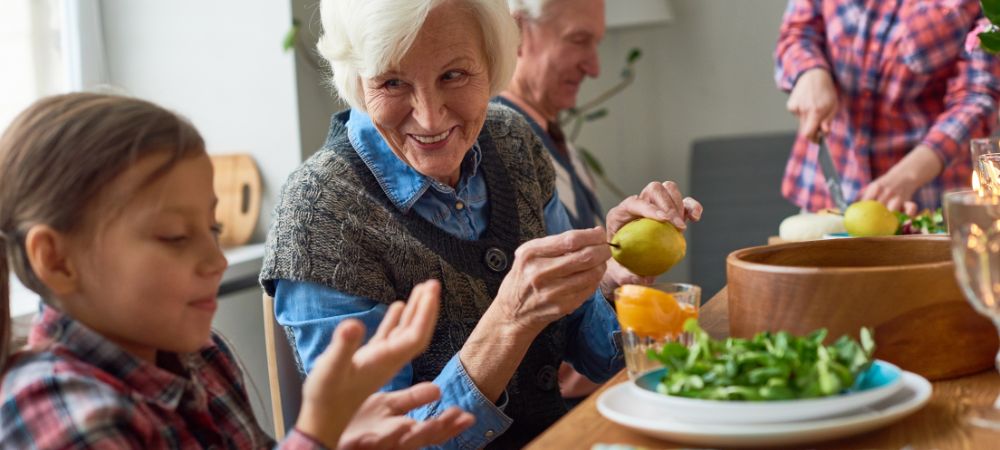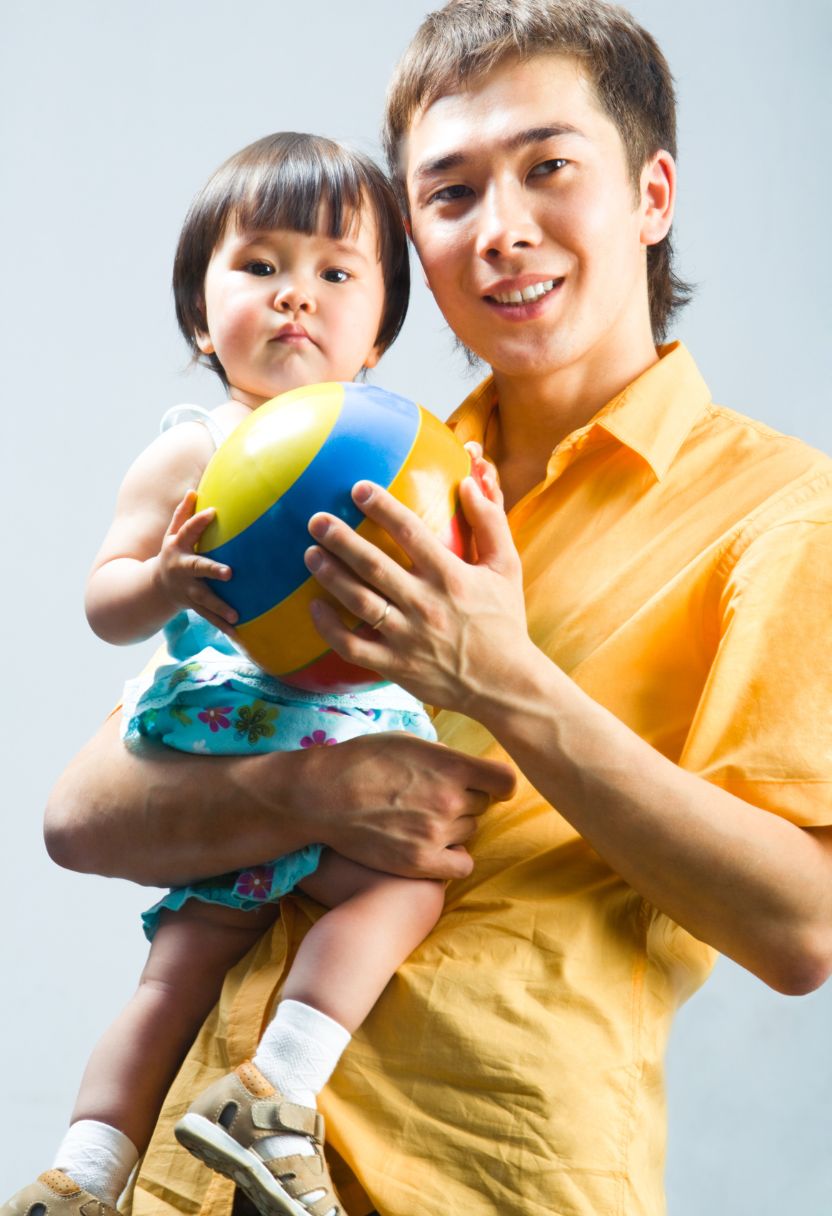

Birth order has always been a fascinating topic, ain't it? There's something about where you fall in your family that seems to shape who you become. From the firstborn to the middle child, youngest, and even the only child, each position comes with its unique set of characteristics and quirks. Let's dive into this intriguing world of birth order effects.
Firstborns often get tagged as the natural leaders of the pack. check . Receive the news browse through below. They usually have more responsibilities heaped on them from a young age, which can make them pretty darn reliable and conscientious. They're kinda like mini-parents before they even hit puberty! But hey, it's not all sunshine and roses for these guys. With high expectations come a fair share of pressure, and sometimes they don't feel like they're ever good enough.
Now let's talk about those mysterious middle children. Stuck between the trailblazing firstborns and the attention-grabbing youngest siblings, middles often feel like they're on an emotional seesaw. They might not get as much spotlight time as their siblings but oh boy do they know how to compromise! Middle kids are known for being great negotiators-skills honed from years of trying to keep peace at home. But let's be real; sometimes they can also feel kinda neglected or overlooked.
Oh man, then we have the youngest ones-the babies of the family! These kiddos are often seen as charming little rebels who know exactly how to wrap everyone around their tiny fingers. Because parents are typically more relaxed by this point (who's got energy left for strict rules?), youngest children often grow up feeling free-spirited and adventurous. However, don't think it's all fun and games; they might struggle with being taken seriously when they're older.
Finally, we got our only children-the lone rangers of familial hierarchies! Being an only child means you're both firstborn and lastborn rolled into one neat package-no sibling rivalry here! These kids tend to be mature for their age because they've spent so much time around adults. While they enjoy undivided attention from their folks (lucky them), it can also mean dealing with intense scrutiny too.
It's important though not to box people in based solely on their birth order; we're all way too complex for that kind of simple categorization anyway! Family dynamics play such a huge role too-what works in one family might be totally different in another.
So there you go-a quick overview of how different birth orders can potentially shape us into who we are today-or maybe not at all! Ain't life funny that way?
Birth order has fascinated psychologists for decades. It's a compelling topic that delves into how the sequence of your birth within your family can shape who you are, or at least, some believe it does. There are psychological traits associated with each birth order-firstborns, middle children, the youngest, and only children-that supposedly mold our personalities in various ways.
Firstborns often get pegged as responsible and organized. They're seen as natural leaders and achievers. The theory goes that because parents give them undivided attention before any siblings come along, they develop strong leadership skills and an affinity for taking charge. However, this doesn't mean they're always bossy; rather, they tend to be reliable and conscientious. Oh! And let's not forget-they sometimes get stressed out from all the expectations placed on them.
Middle children are a bit of an enigma. They're supposedly more adaptable but can also feel overlooked between the older and younger sibling's spotlight moments. As a result, middle kids might become peacemakers or people-pleasers to gain attention in other ways. Sometimes they're even considered rebellious or nonconforming as a way to carve out their own identity separate from their siblings'. They ain't exactly predictable!
Now onto the youngest children-the babies of the family. These folks are often viewed as charming and outgoing since they've had to win over not just their parents but also older siblings throughout their lives. Because they've always been part of a larger group dynamic, they're said to be good at socializing and sometimes even risk-takers due to fewer parental restrictions compared to firstborns.
Last but certainly not least are only children-those without siblings who grow up receiving all of their parent's focus (both positive and negative). Only kids can be very mature for their age because they spend so much time around adults instead of peers. They might be perfectionists too since there's no one else around to share responsibilities or blame when things go wrong.
Yet despite these generalizations about birth order effects on psychological traits, it's important not to take them too seriously or see them as absolute truths! Each individual's personality is influenced by so many factors beyond just whether you're the oldest or youngest in your family. Parents' styles vary widely; socio-economic status plays its role; cultural background can't be ignored either-and let's face it-sometimes it's just plain genetics doing its thing.
In conclusion (if I may dare summarize such a nuanced topic), while there are commonly accepted traits linked with each birth order position: responsibility for firstborns; adaptability for middle children; charm for the youngest; maturity for only kids-it ain't written in stone! We're all shaped by myriad influences that make us unique individuals-not merely products of our place in line among our brothers and sisters.
**Celebrating Milestones Together: Uncover the Hidden Techniques for Lasting Connections**
Strengthening family bonds ain't just about spending time together; it's about making those moments meaningful.. One of the most powerful ways to do this is by celebrating milestones and special occasions as a family.

Posted by on 2024-07-04
Family conflicts are a part of life; they happen to everyone.. It can be quite challenging, and let's face it, no one really enjoys dealing with them.

Posted by on 2024-07-04
Building resilient family relationships is no small feat, especially when it comes to communication and conflict resolution.. But hey, it's not impossible either!

Posted by on 2024-07-04
The impact of birth order on parent-child relationships is a topic that has intrigued researchers and parents alike for years. It ain't something everyone thinks about, but the position of a child in the family can actually shape their personality and how they interact with their parents. And you know what? It's not just some theoretical mumbo jumbo; there's real-life evidence to back it up.
Firstborns often get all the attention, don't they? They're like the guinea pigs for new parents who are still figuring things out. That can be both good and bad. On one hand, firstborns may receive more undivided attention from their parents because there's no one else around yet. This can lead to them being more responsible and mature-sometimes too much so! But oh boy, it also means they might feel pressured to meet high expectations, which ain't always fair.
Now let's talk about middle children. Ah, the infamous “middle child syndrome.” It's said that middle kids often feel left out or overlooked because they're neither the oldest nor the youngest. They didn't get that intense focus like the firstborn did nor do they have the cuteness advantage of being the baby of the family. However, this perceived neglect can sometimes make them more independent and resourceful since they've had to find their own way.
And then we have the youngest children-the babies of the family. These kids often get away with murder! Well, not literally, but you know what I mean. Parents might be a bit more relaxed by this point because they've gone through it all before. While younger kids may benefit from a less strict upbringing, they could also grow up feeling babied and dependent.
It's important to remember that these are general trends-not rules set in stone. Not every firstborn is going to be super responsible and not all middle children will feel neglected. There are loads of other factors at play such as parental involvement, family dynamics, socio-economic status-you name it!
In conclusion, while birth order can certainly affect parent-child relationships in various ways, it's definitely not a definitive predictor of how those relationships will turn out. So if you're worried that your spot in your family lineup doomed you or blessed you-don't sweat it too much! There's a lot more to consider when it comes to understanding how families work together (or don't).

Influence of Sibling Dynamics and Rivalries on Birth Order Effects
You'd probably think siblings don't have much impact on who we become, right? Well, you'd be wrong. The dynamics between siblings play a pretty big role in shaping our personalities and behaviors. Especially when it comes to birth order effects, the influence of sibling relationships can't be overstated.
First off, let's talk about the oldest child. They often shoulder more responsibility since parents tend to expect more from them. They're like the trailblazers for their younger siblings. But hey, it's not all sunshine and roses! With great power comes great pressure. Oldest children might feel burdened by expectations and sometimes even grow resentful of their younger siblings' seemingly easier ride.
Now, middle children-oh boy! They get sandwiched between the older one's achievements and the youngest's cuteness. It's easy to see why they might feel neglected or overlooked. This can lead to what some call "middle child syndrome." But wait a second-it's not all bad! Middle kids often develop strong negotiation skills and learn how to mediate conflicts effectively because they're sorta forced into that role.
And then we've got the youngest child-the baby of the family. Parents are usually way more relaxed by this point (they've been through it all before), so the youngest tends to get away with more stuff than their older siblings did at that age. It ain't fair, but that's life! These little ones often grow up feeling pampered and sometimes even spoiled, which affects their sense of independence.
But hold up-it doesn't end there! Sibling rivalries add another layer of complexity to birth order effects too. When brothers and sisters compete for parental attention or resources, it can seriously shape how they view themselves and others around them. For example, rivalry can push kids to excel in different areas just so they stand out from each other; one might dive into sports while another focuses on academics or artsy stuff.
However-and here's where things get really interesting-that same rivalry also fosters resilience and problem-solving skills 'cause siblings learn early on how to navigate competition within a close-knit environment without breaking ties completely (most times). So yeah-sibling dynamics aren't either entirely good or bad; they're kinda like double-edged swords!
In conclusion (if there's such thing as concluding something so complex), sibling dynamics-including those pesky rivalries-significantly influence birth order effects in ways we can't ignore nor fully understand yet! Whether you're an eldest child setting examples under pressure or a middle kid mastering compromise-or even if you're just enjoying being the baby-you'll find your journey shaped largely by these intricate family relationships.
So next time someone says birth order doesn't matter much? Just smile knowingly-they've probably never dealt with sibling rivalry firsthand!
Oh, birth order effects! It's a topic that's been debated for ages. When we talk about the long-term effects on adult relationships and social behavior, it's fascinating to see how siblings' positions in the family hierarchy might shape their lives. But hey, nothing's ever black and white, right?
So, first off, let's chat about the oldest child. They're often seen as the responsible ones-the natural leaders. As adults, they might be more inclined to take charge in relationships or social situations. They ain't always bossy but could come off that way sometimes. It's just that they're used to looking out for their younger siblings.
Now, middle children-they're a real puzzle! They often get sandwiched between the overachieving eldest and the pampered youngest. Middle kids might end up being more adaptable and diplomatic because they've had to navigate their place in the family. In adult relationships, they could be great mediators but might also feel overlooked or underappreciated at times.
Ahh, then there's the youngest child-the baby of the family. Spoiled? Maybe a bit! These folks are often more carefree and rebellious since they didn't have anyone younger to boss around. In social settings and relationships, they can be quite charming and fun-loving but sometimes struggle with responsibility 'cause they've been babied all their life.
And let's not forget only children-those unique individuals who didn't have to share their parents' attention with siblings. They tend to be mature for their age and pretty self-sufficient but may face challenges when it comes to sharing or compromising in adult relationships.
But hey, let's not kid ourselves-birth order isn't everything! Personality traits come from so many factors: parenting style, socioeconomic status, even random life events play huge roles too! Plus everyone's got different experiences within those birth order stereotypes; some firstborns aren't all that responsible and some babies of families aren't spoiled brats!
In conclusion (wow that sounds formal!), while birth order might give us some intriguing patterns when it comes to adult behavior and relationships, it's by no means a set-in-stone rulebook for human interaction. So next time you meet someone who's an oldest or youngest sibling-or smack dab in the middle-remember: they're shaped by much more than just where they fall on the family tree!


When it comes to the topic of birth order effects, there's always been a lotta buzz. Some folks swear by it-claiming that whether you're the firstborn, middle child, or the baby of the family affects your personality and life outcomes significantly. But let's not kid ourselves; criticisms and limitations of birth order research are aplenty.
First off, one major criticism is about consistency-or rather, the lack thereof. Researchers just can't seem to agree on what these birth order effects actually are. While some studies suggest firstborns are more responsible and successful, others don't find any significant differences among siblings at all! It's like trying to nail jelly to a wall.
Then there's this whole issue with confounding variables. Birth order research often fails to account for things like socioeconomic status, parental involvement, or even cultural factors. Imagine comparing a firstborn from a wealthy family with lotsa resources to a third-born from a struggling household-it's apples and oranges! So yeah, these other factors can muddy up the results pretty bad.
Another limitation? Self-reporting biases. A lotta these studies rely on questionnaires where people describe their own personalities and behaviors. But let's face it: people ain't always honest or self-aware enough for that data to be reliable. If someone thinks they're bossy 'cause they're an eldest child, they'll likely report being bossy-which kinda skews everything.
Oh boy, don't even get me started on sample sizes! Many of these studies use small or homogenous groups that don't represent the general population well at all. It's not unusual for researchers to study only college students or families from similar backgrounds which makes it hard (if not impossible) to generalize findings broadly.
And let's not forget about publication bias-the tendency for journals to publish positive findings over null ones. This means we might be seeing only part of the picture since negative results (which are common in birth order research) often don't make it into academic journals at all.
Lastly-and this is crucial-birth order theories can sometimes lead us down a path of determinism that's just plain unhealthy. People may start attributin' their failures or shortcomings solely to their position in their sibling lineup instead of taking responsibility or looking at other influencing factors in their lives.
So there you have it: while it's tempting to buy into neat little explanations for complex human behaviors based on birth order alone, reality isn't so simple-or so tidy.
When it comes to birth order effects, the practical implications for parenting and family counseling can be quite significant. I mean, who'd have thought that whether you're firstborn or the youngest could shape so much of your personality, right? But it's true! So let's dive into what this means for parents and counselors working with families.
First off, parents need to realize that kids aren't just blank slates waiting to be molded. They come with their own set of traits and quirks which are influenced by where they fall in the sibling lineup. The oldest child often feels a lot of pressure to meet high expectations. They're usually the responsible ones, sometimes even bossy! Parents should try not to pile too much on them because it's easy for these kids to feel overwhelmed.
Next up is the middle child. Oh boy, middle children can often feel left out or overlooked since they're neither here nor there – not the trailblazing firstborn nor the pampered baby of the family. It's crucial for parents to ensure that these kiddos get their fair share of attention and validation. Otherwise, they might start acting out just to get noticed!
Now let's talk about those adorable youngest siblings. They're usually seen as more free-spirited and sometimes spoiled because they've got all eyes on them from day one. Parents might tend to coddle them a bit too much, thinking they're still babies when they're actually growing up fast! Letting them take on responsibilities early can help balance things out.
And don't forget only children! With no siblings around, they tend to mature pretty quickly but might also struggle with sharing or teamwork skills since they haven't had practice at home. Encouraging social activities outside of home can help build those vital skills.
For family counselors dealing with these dynamics in therapy sessions, understanding birth order effects is a game-changer. It provides insight into some underlying issues between siblings or even between parent and child relationships. By addressing these patterns head-on, counselors can guide families towards healthier interactions and better communication.
So yeah, birth order isn't something you wanna ignore if you're raising kids or helping families navigate life's ups and downs through counseling sessions. Embracing this concept doesn't make everything magically perfect-but it sure helps explain why people act how they do within their families!
In conclusion-don't dismiss birth order as mere pop psychology; it has real-world applications that could make a huge difference in how we approach parenting and family counseling strategies!
